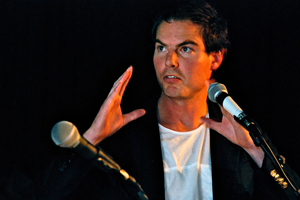Rotterdam’s cultural policies and their impact
Leo van Loon
Related fights
- Regeneration of the Jakominiviertel in Graz
- Regeneration of Bristol’s docks
- Rotterdam’s cultural policies and their impact
- East London as a creative cluster
- Beyond the creative industries
- Large cities vs Smaller towns
- Turkish wedding businesses revitalised the city
- Zollverein mine
- Creating the city
- Urban planning in Helsinki
- Downside of gentrification
- Haushalten brought new energy into the city
- Regeneration of Karlheinestrasse
